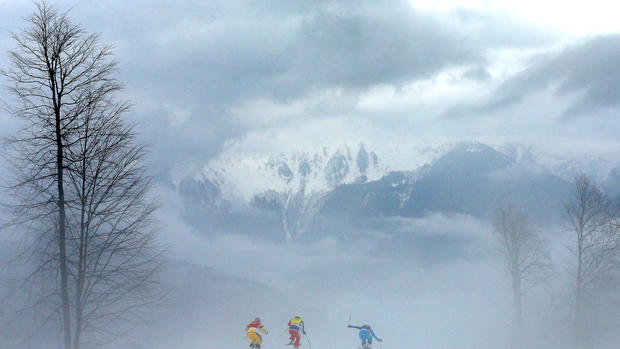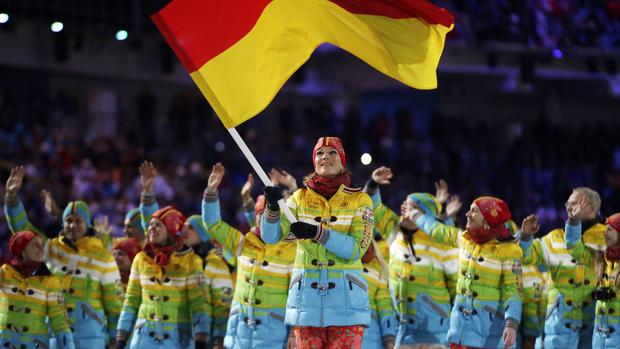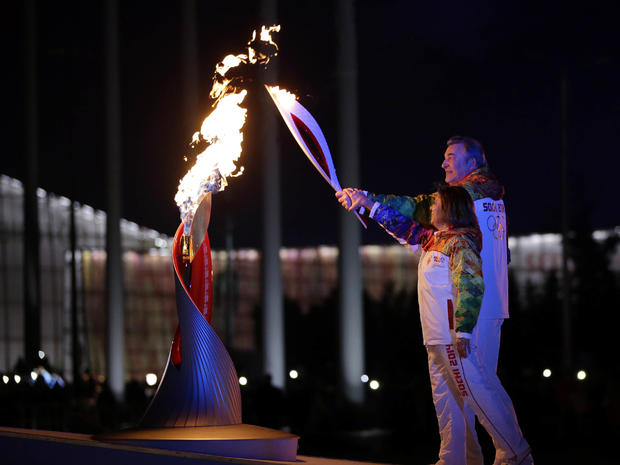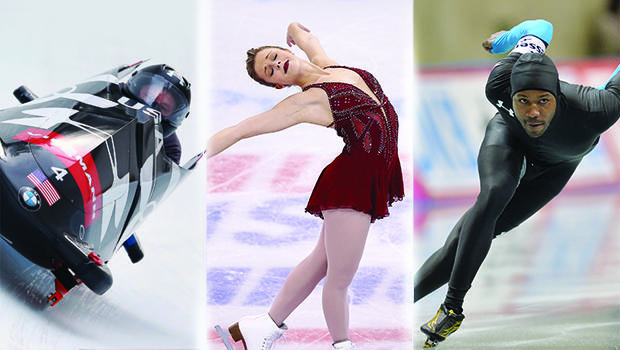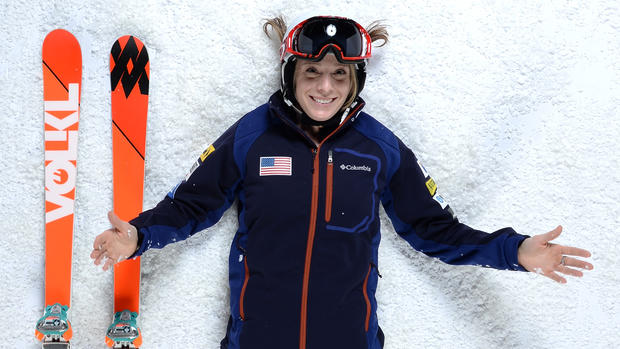U.S. nabs 1st gold, choice for torch lighting questioned
SOCHI, Russia - Russia's Winter Olympics sprang into action on Saturday with the first full day of sporting contest, finally drawing the world's gaze from militant threats, a widely criticised “gay propaganda” law and an opening ceremony that did not go completely to plan.
The United States claimed the first gold in the slopestyle event held amidst the snow-capped peaks of the Caucasus Mountains, some 25 miles northeast of the Black Sea resort town of Sochi where the main Olympic park is located.
Rock music blared and fans danced as the event, which bears similarities to skateboarding, made its debut in an initiative to attract a younger demographic to Winter Olympic sport.
“I have no idea what's actually going on. This is the craziest thing that ever happened,” Kotsenburg said.
President Vladimir Putin has staked his reputation on hosting a safe and successful Games.
Some 37,000 security personnel are on high alert in Sochi over threats by Islamist militant groups based in nearby Chechnya and other north Caucasus regions to attack the Feb. 7-23 Games, the most expensive ever at a cost of $50 billion.
Security analysts believe an attack is more likely elsewhere in Russia to humiliate Putin, who launched a war to crush a Chechen separatist rebellion in 1999.
Now the Games are up and running, Putin hopes they will project Russia as a resurgent power that has finally shed the shackles of its Soviet past.
The opening ceremony on Friday night before 40,000 spectators and millions more watching on television tried to do just that, taking viewers on a race through Russian history with spectacular set pieces on a gargantuan scale.
HITCHES HIDDEN, CHOICES QUESTIONED
The event, at the gleaming Fisht Stadium built on the shores of the Black Sea, was not without its problems.
One of the five Olympic rings failed to open properly, and when Russian state television noticed, footage of a successful rehearsal was used instead to conceal the glitch.
On Saturday, Russia's Games chief Dmitry Chernyshenko was questioned about the choice of triple Olympic figure skating champion Irina Rodnina to light the Olympic flame — a huge honour in the sporting world.
“Irina Rodnina is from the club of three-times gold medallists and one of the most respected in the world,” Chernyshenko told reporters. “The Olympic Games are not about politics,” he said.
Nevertheless, Putin held a meeting on Friday with Ukrainian counterpart Viktor Yanukovich, who was in Sochi for the opening ceremony despite a political and economic crisis at home that has brought thousands of protesters onto the streets.
The following day, Moscow cranked up pressure on its neighbor by linking the disbursement of a sorely needed tranche of a $15 billion aid package to Kiev with the repayment of a hefty gas bill owed to Russian firms.
GOLD RUSH
Five gold medals were up for grabs on Saturday. The action concludes around midnight with the floodlit women's moguls.
There were plenty of empty seats at Sochi venues on Saturday. Organisers said about 70 percent of tickets had been sold for the Games overall, and that some venues' seating capacity had to be reduced for security reasons.
Sven Kramer of the Netherlands successfully defended his 5,000 meters title in an Olympic record time at the Adler Arena.
And Norway's Ole Einar Bjoerndalen matched compatriot Bjorn Daehlie's Winter Games record of 12 medals when he won the biathlon men's 10 km sprint.
Women's ski jumping got its first Olympics run out with a training session, after a campaign to have the sport included.
Looking ahead to Sunday's big draw, the men's downhill, American Bode Miller laid bare the dangers faced by competitors when he said the treacherous Rosa Khutor piste “could kill you".
The veteran clocked a speed of 82.4 miles per hour as he topped the timesheets in the final training run for the race, but was shaken after seeing team mate Marco Sullivan narrowly escape a serious crash.
“Not kill myself was the primary (objective),” Miller said.
SISTER, SISTER
Canada’s sister act Justine, Chloe and Maxime Dufour-Lapointe dominated women’s moguls Saturday. Justine, at 19 the youngest of the siblings, took the gold and Chloe, 22, grabbed silver.
“We were ready and every one of us had something to do and had her own plan. When we were up at the gate, for sure we had some looks, but then everybody has to do her job,” Chloe said.
The sisters’ success came at the expense of American Hannah Kearney, who entered the competition as the favorite after dominating the field since winning gold in the 2010 Vancouver Games.
“I feel like I let myself down,” said an emotional Kearney after earning bronze.
#SOCHIPROBLEMSOne of the dominant themes of the Olympics so far has been the at times bizarre scenes encountered by journalists and athletes, from unfinished hotel rooms to bathroom anomalies. The latest contribution comes from U.S. bobsledder Johnny Quinn, who had to make an improvised exit from the loo.
